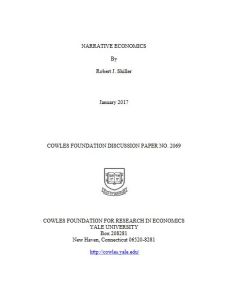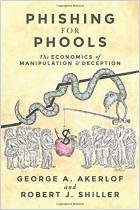
Read or listen offline
audio autogenerado
1×
audio autogenerado
Recommendation
The field of economics lags considerably behind other social sciences, such as history, anthropology and sociology, in understanding the ways narratives affect human thoughts and actions. Noted economist Robert J. Shiller explains the large-scale ramifications and detailed nuances of “narrative economics,” and how stories about an economic event – perhaps tales of the Great Depression or accounts of asset bubbles – may contribute to financial disruption. getAbstract recommends his erudite report to economists and historians interested in a sweeping discussion of the arc of narrative and its impact on economies.
Take-Aways
About the Author
Nobel laureate Robert J. Shiller is a professor of economics and finance at Yale University.
By the same author
Book
Book
Book
Learners who read this summary also read
Book


























Comment on this summary or Comenzar discusión